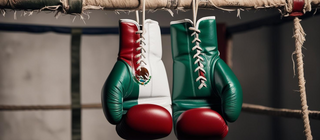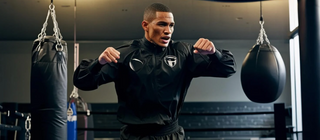Effective Sparring in Combat Sports: How to Become a Champion.
What is Sparring?
Sparring is that magical (or terrifying) moment when the techniques you’ve learned in the gym meet the reality of combat. It’s not about "fighting" without rules but about simulating a real match, with the clear goal of improving, not destroying your partner. In short, a friendly exchange of punches and kicks (as friendly as it can be).
The Importance of Sparring
Sparring is like a test drive for a race car: it prepares you for the real show. It helps you to:
- Feel the pressure and rhythm of a real fight.
- Refine your techniques and understand which ones work (and which don’t).
- Learn to manage stress when someone is trying to hit you.
- Build physical and mental endurance to never give up.
Essential Equipment for Safe Sparring
Want to spar? Great, but first, make sure you’re properly equipped, because no one wants to end up in the hospital after a training session. Here’s what you need:
- The right boxing gloves: Gloves are not "one size fits all." You need to choose the weight based on your body weight: usually, 14 oz or 16 oz are ideal for safe sparring. The heavier the glove, the more padding, and the less likely you are to leave a permanent mark on your partner’s face.
Also read: How to choose the right boxing gloves - Protective headgear: A well-padded, properly fitted helmet protects against head blows and reduces the risk of concussions. If the helmet slips over your eyes, it’s time for a new one.
Also read: How to choose boxing headgear - Shin guards: If you practice sports like Muay Thai, protect your legs and those of your partner. Nobody wants to limp for days after sparring.
Also read: How to choose shin guards for combat sports - Mouthguard: Essential to avoid turning your smile into a puzzle.
Also read: How to choose the right mouthguard
Types of Sparring
Not all sparring is the same. There are different modes to help you improve:
- Technical Sparring: Focus on technique, not power. This is where you show how stylish, not how strong, you are.
- Light Sparring: Ideal for working on speed and precision. Here, the hits are more "tap" than "boom."
- Full Sparring: Intensity rises, but always with control. Reserved for more experienced fighters, as the risk of taking a serious hit is real.
Benefits of Sparring
Don’t underestimate the power of sparring. Here’s what you can gain:
- Real skills: Moving from theory to practice is essential to becoming a complete fighter.
- Endurance: It’s not just about hitting but also about enduring and continuing to fight.
- Emotional management: Sparring helps you stay calm even under pressure.
- Tactical skills: Reading your opponent and reacting in real-time is a skill you only develop in the ring.
Tips for Effective Sparring
Want to shine in the ring? Here are some tips:
- Communicate with your partner: Agree on the intensity and goals of the session.
- Don’t play superhero: Control the strength of your punches. Sparring is training, not a blood match.
- Change partners: Sparring with different people prepares you to fight against different styles.
- Analyze your mistakes: Every session is a lesson. Always strive to improve, one punch (or kick) at a time.
Conclusion
Sparring is not just part of training: it’s where you truly learn to fight. Prepare yourself, protect yourself, and give it your all, but remember to have fun. In the end, combat sports are a passion, and every punch given or received brings you closer to the fighter you want to become.
So, grab your gloves (the right ones, of course), strap on your helmet, and step into the ring. It’s time to really learn!







